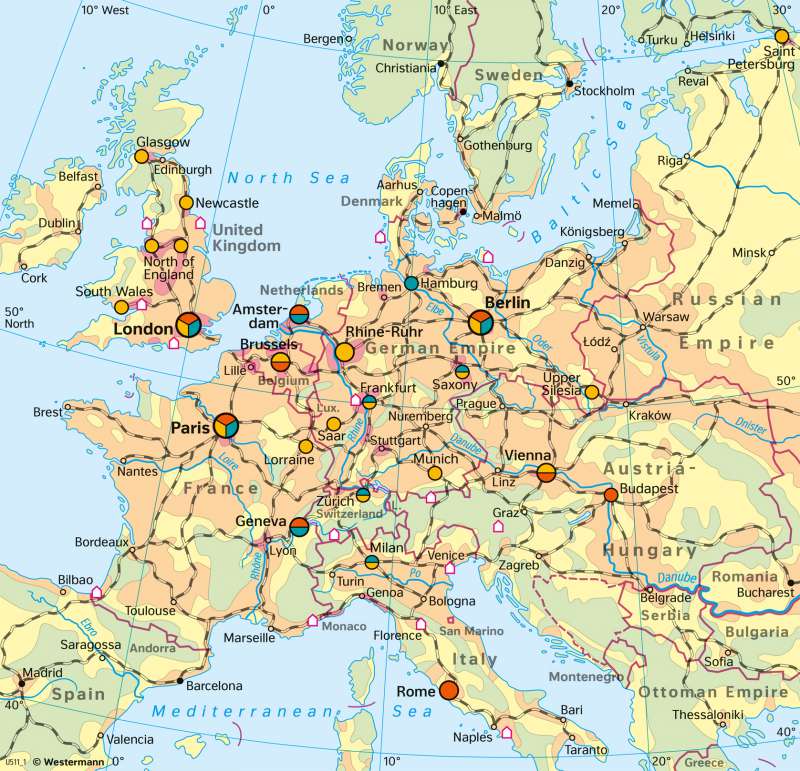Europe - Interconnected economic centres circa 1900
Economy
978-3-14-100890-6 | Page 64 | Ill. 2

Overview
The economic development in Europe up to the turn of the century was characterised by an enormous increase in national and international networking compared to 1850. This was due to various factors. On the one hand, between 1850 and 1900, the railway networks of all industrial nations were expanded at an accelerated pace for political, military, and economic reasons. In the German Empire, for example, it grew from 7,000 to around 50,000 kilometres of track, in France from 3,000 to 40,000. No less important was the simultaneous expansion of the telegraph networks, mostly along the railway lines. It led to an unprecedented acceleration of news and stock exchange trading, enabled better use of existing routes and dynamised production as well as distribution and capital flows. Using the immensely expanded rail and telegraph connections, industrial, financial, and urban centres were interlinked and connected to the overseas ports, the hubs of intercontinental trade.
Germany - birth of an industrial power
Germany in particular experienced an economic boom after the founding of the German Empire in 1871. The introduction of a common currency (Deutsche Mark), the fall of inner-German borders and the war reparation payments from France meant that the country experienced an enormous upswing during the "Gründerzeit". The cities in the Ruhr area grew rapidly, and not only there: Berlin's population quadrupled from around 420,000 (1850) to 1.9 million inhabitants (1900). In 1880, Germany became the third largest industrial nation after Great Britain and the USA. Electrical engineering, motor and mechanical engineering and large-scale chemicals became the new leading sectors. In 1900, Germany caught up with Britain in steel production, making it the continent's most productive country. Almost a third of its workforce worked in industry - more than ever before.
Imperialist rivalries
But the economic connections did not prevent the political tensions and national rivalries between the countries of Europe from becoming increasingly explosive in the age of imperialism, until they finally culminated in the First World War.




